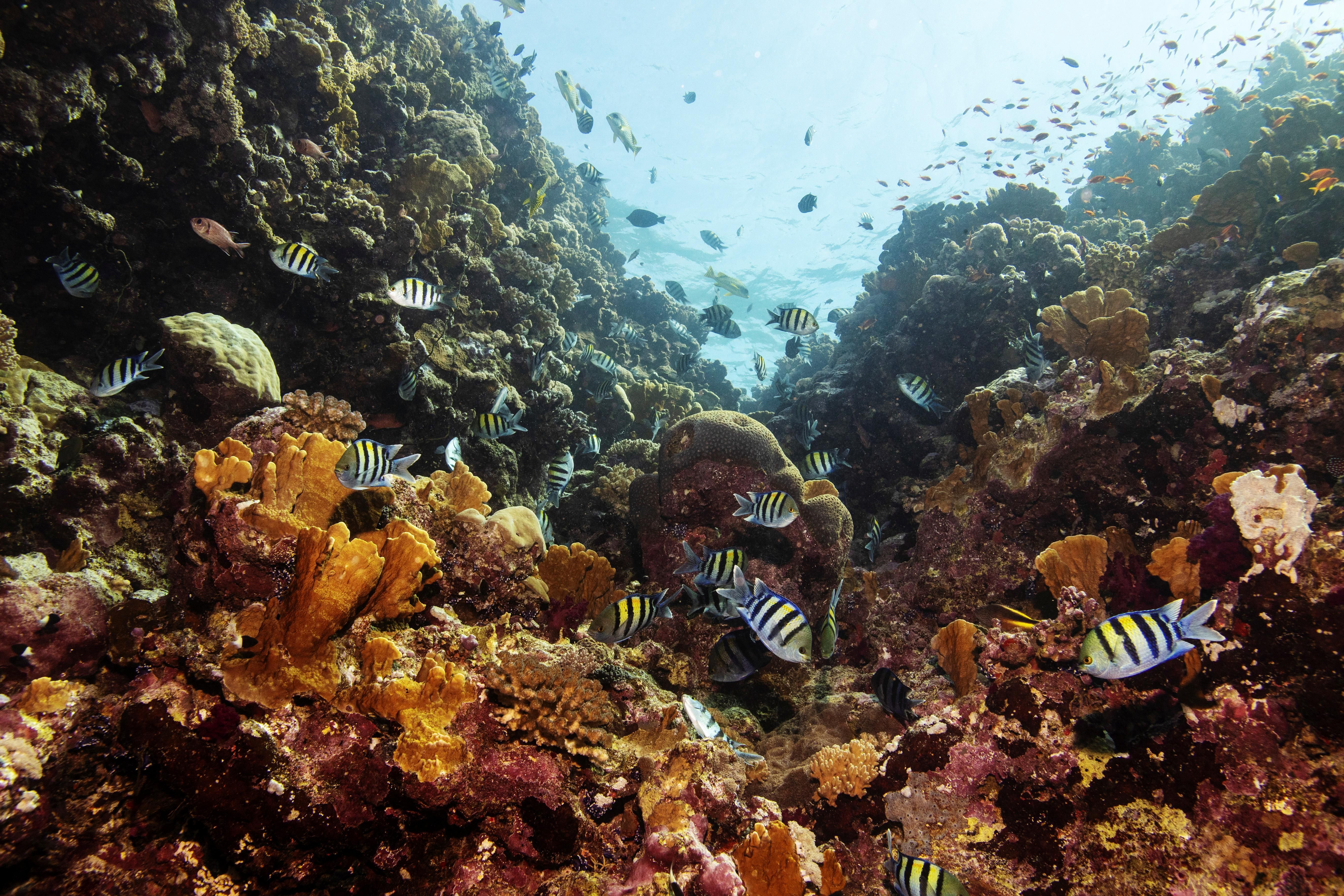April 23, 2021
Rising sea temperatures are "the greatest hidden challenge of our generation," revealed a 2016 climate report. Small Island Developing States (SIDS) like the Maldives, as well as those in the Caribbean and elsewhere in the Pacific are particularly vulnerable to the impacts of climate change on oceans and extreme weather patterns. But how much power do these nations actually have to address the mounting problems?
Disproportionate burden. Despite accounting for a small amount of global carbon emissions, small island developing states are on the front lines of the climate crisis, facing unique challenges as a result of climate-induced ocean warming and rising sea levels. Consider that most of the Bahamas is expected to be underwater by 2050, while the entire Maldives could be submerged by the end of the century.
At the same time, current trends threaten marine life (coral reefs, algae, turtles, fish) that sustain many of these island communities. Take the tuna trade, for example. Degradation of the ocean could reduce annual tuna catch in the Pacific by 10 percent over the next three decades, analysts say. This is a massive problem for islands like the Marshall Islands, where agriculture and fishing accounts for over 15 percent of GDP.
What are these islands doing about it? Ocean states like the Maldives have been pushing for global action to reduce greenhouse gas emissions that have led to more destructive weather events (cyclones, hurricanes) in recent decades. They have also been the driving force behind the inclusion of targets in the Sustainable Development Goals 2030 agenda designed to "conserve and sustainably use the oceans, seas and marine resources for sustainable development." To date, 97 countries have signed onto a binding international agreement on sustainable fishing.
On issues of marine life preservation, many island nations have been batting above their weight, closing off marine protected areas to preserve Earth's biggest ecosystem and protect the economic interests of their communities. For Grenada, an island of 112,000 people in the Caribbean, protecting essential marine life habitats has sought to raise the productivity of lucrative (fish) products.
But these initiatives could prove futile if top emitters don't limit their global greenhouse gas emissions — fast. Together, China and the US account for roughly 40 percent of global emissions. Chinese and Indian emissions, particularly from coal, remain the single most lethal threat to the climate, according to Eurasia Group's Gerry Butts.
While these countries have pledged to reduce their carbon output in the medium term, massive gaps persist. President Xi Jinping has not outlined a solid blueprint for how China plans to get to Net Zero by 2060. Meanwhile, India, the world's third largest emitter of carbon dioxide, is embroiled in a back-and-forth with rich nations in North America and the EU about whether the latter should spend more on helping developing countries realize their climate action plans with less stringent requirements.
Sharing the load. While small island developing states are particularly vulnerable to many of the problems caused by the warming climate, it is clear that these nations, with tight purse strings and limited resources, cannot go it alone as sea temperatures reach their highest levels in a million years. Since they are largely at the mercy of large economies responsible for the vast amount of damage, the only solution is a global one.
More For You
Microsoft unveiled a new set of commitments guiding its community‑first approach to AI infrastructure development. The strategy focuses on energy affordability, water efficiency, job creation, local investment, and AI‑driven skilling. As demand for digital infrastructure accelerates, the company is pushing a new model for responsible datacenter growth — one built on sustainability, economic mobility, and long‑term partnership with the communities that host it. The move signals how AI infrastructure is reshaping local economies and what people expect from the tech shaping their future. Read the full blog here.
Most Popular
- YouTube
On GZERO World, Finnish President Alexander Stubb says that Ukraine and its NATO allies are aligned on a path to a ceasefire but warns that Vladimir Putin will drag out the war, not because he thinks he’ll win… but because he knows he’ll lose.
- YouTube
At the 2026 World Economic Forum in Davos, GZERO’s Tony Maciulis spoke with Ariel Ekblaw, Founder of the Aurelia Institute, about how scaling up infrastructure in space could unlock transformative breakthroughs on Earth.
- YouTube
Who decides the boundaries for artificial intelligence, and how do governments ensure public trust? Speaking at the 2026 World Economic Forum in Davos, Arancha González Laya, Dean of the Paris School of International Affairs and former Foreign Minister of Spain, emphasized the importance of clear regulations to maintain trust in technology.
© 2025 GZERO Media. All Rights Reserved | A Eurasia Group media company.
